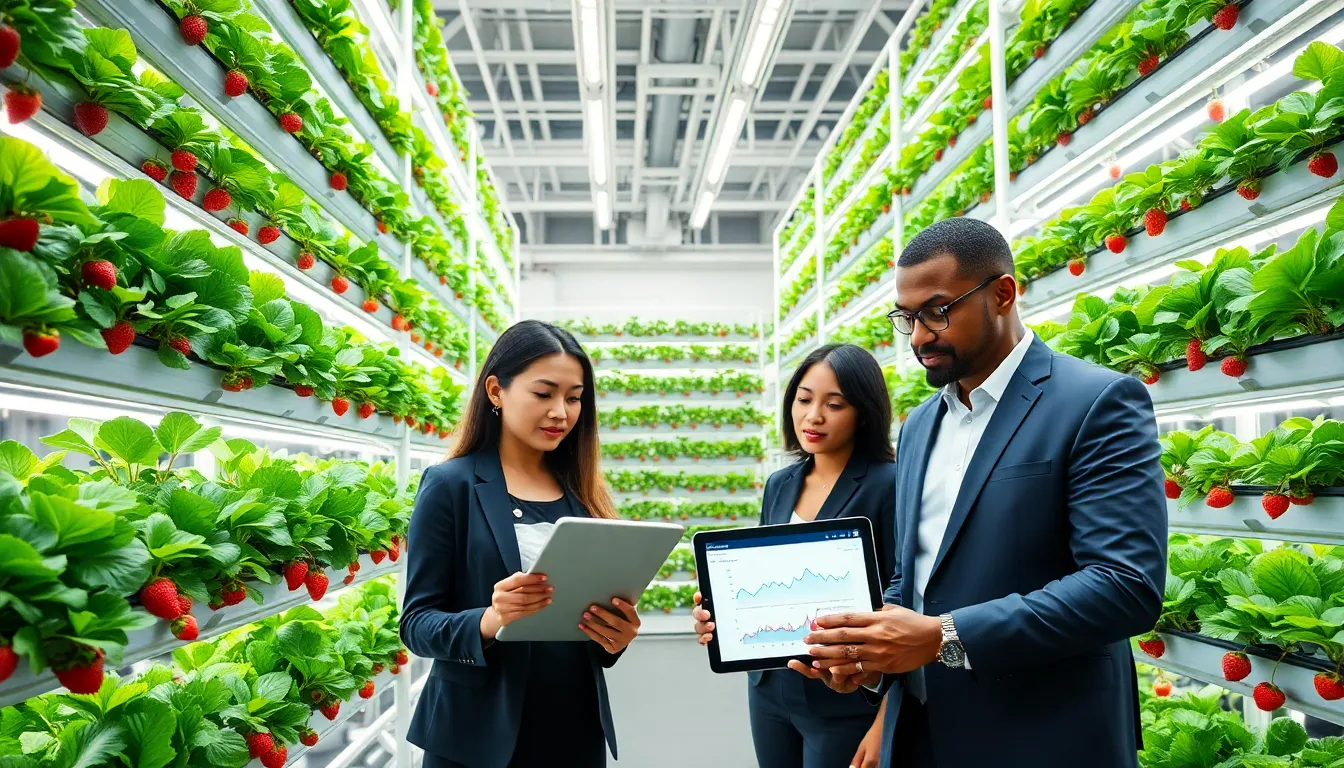Imagine a world where your dinner is not only delicious but also crafted with cutting-edge technology. Food tech innovations are revolutionizing the way we create, process, and consume our meals. From vertical farming in your urban jungle to artificial intelligence (AI) making decisions about food processing, the culinary landscape is changing faster than you can say “organic quinoa.” As we jump into this intriguing realm, you might find yourself munching on a burger that’s never seen a cow. So, sit back, grab a snack, and let’s explore how these food tech innovations are shaping our collective gastronomic future.
Table of Contents
ToggleEmerging Technologies in Food Production

Cultivating Food with Vertical Farming
Vertical farming is the future of agriculture, especially in urban settings where space is at a premium. This innovative technique stacks rows of crops vertically, allowing for maximum yield with minimal land use. Utilizing hydroponics and aquaponics, farmers can grow everything from leafy greens to strawberries without the need for traditional soil. Not only does this conserve water, but it also eliminates the need for pesticides, thereby promoting healthier produce.
The Role of Artificial Intelligence in Food Processing
AI in food processing is nothing short of a culinary revolution. With algorithms that analyze vast amounts of data, AI systems can optimize workflows in factories and predict supply chain issues before they arise. Picture a machine that not only processes tomatoes but also predicts which varieties will be in demand next season. This leap forward helps reduce waste and ensure that food reaches consumers while it’s still fresh.
Advancements in Laboratory-Grown Meat
Laboratory-grown meat, often referred to as “cultured meat,” has taken the food tech world by storm. This innovation allows consumers to enjoy the taste and texture of meat without the need for traditional livestock farming. It’s not just a trend: it’s a solution to various ethical and environmental issues associated with animal agriculture. With companies working diligently to refine the growing process, the day when lab-grown steaks are as common as your favorite burger joint may be closer than we think. Expect this tech to lower greenhouse gas emissions and minimize land usage significantly.
Sustainable Packaging Solutions in Food Tech
The environmental impact of packaging has come under scrutiny, prompting a wave of sustainable solutions in food tech. Companies are now developing biodegradable materials that not only reduce waste but also maintain food freshness longer.
Smart Kitchen Appliances and Their Impact
Smart appliances are changing the way we interact with food preparation. Your refrigerator might soon have a mind of its own, keeping track of what groceries are running low and even suggesting recipes based on available ingredients. Such advancements make cooking at home more practical, ensuring that nothing goes to waste.
IoT and Connected Devices in Food Safety
The Internet of Things (IoT) is enhancing food safety like never before. Connected devices monitor temperature and humidity levels in storage facilities, sending alerts if conditions deviate from the norm. This technology not only ensures consumer safety but also helps businesses maintain compliance with health regulations.
The Intersection of Blockchain and Food Supply Chains
Blockchain technology is making waves in the food supply chain, offering transparency and traceability in ways previously unimaginable. Consumers today want to know where their food comes from and how it was handled before making its way to their plates. Blockchain provides an unalterable ledger of every transaction, ensuring that all parties from farm to fork can be held accountable. This technology can help trace contaminants quickly if a foodborne illness outbreak, ensuring safer food for all.
Consumer Trends Driving Food Tech Innovations
Understanding consumer preferences is paramount in driving food tech innovations. Today’s consumers are more health-conscious, environmentally aware, and open to trying new dietary formats, such as plant-based options. They crave transparency about what’s in their food and how it’s made. As a result, companies feel pressure to innovate continually, focusing on healthy, sustainable, and ethically produced food. This shift is not just driving trends: it’s redefining how food is brought from farm to table.


